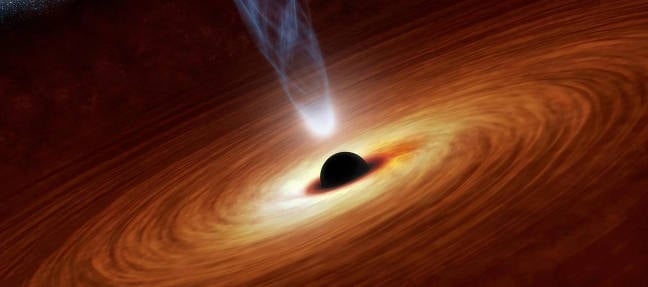It’s hard for Professor Brian Cox to hide his enthusiasm for black holes and he doesn’t really try as he explains it Notes How advances in understanding celestial phenomena have contributed to the development of quantum computing.
“The study of black holes in recent years has changed our view of what space and time are,” Cox said. Notes Last week from Sydney, Australia where she hosted her live show, horizon. “We have seen a close relationship between understanding black holes – how they behave and how information can escape them – and quantum computing.”
Cox said that human understanding of black holes has completely changed over the past decade, bringing with it previously unimaginable windows into quantum gravity theory and thus into how quantum computers are built and used.
“It is extraordinary that the problems and challenges we see and understand in the black hole information paradox, and things like quantum error correction codes, how we protect the quantum computer memory from error, that intersection it’s so close. crossover, “said the former physicist and musician.
“Imagine you want to look at the quantum structure of space and time. What you really want to do is carve out a piece of space, so you can see how it relates to another part of the space, right? Now, you’re going to “Don’t do this, unless the black hole does. And this is the black hole. So studying these things will give you an idea of the basic structure of space. “
This is one of the reasons why Cox thinks projects like the Event Horizon Telescope, a group of eight terrestrial radio telescopes around the world used to observe black holes, are so important. He is also a fan of the James Webb Telescope, the JPL Mars Sample Return mission, Clipper Europe and the proposed grand mission of the gravitational wave detector in space.
He called the current era the “golden age” of space research.
“In a few years, it will be impossible to imagine astronomy without the James Webb Telescope in the same way that it is impossible to imagine without Hubble,” Cox said.
Webb was able to see the composition of early galaxies and was sensitive enough to explore the atmospheres of exoplanets.
“James Webb was one of the first tools, and of course I think it would be fair to say that he is the most powerful tool right now, to be able to examine that atmosphere and look for things like potential biological signatures,” Cox said.
Cox distinguishes between microbes and complex life: Microbes are likely to be more abundant in the universe than complex life.
“I think there could be one civilization in each galaxy on average,” the physicist said. “I think most people would agree. Not many. Although there could be microbes everywhere “. ®


